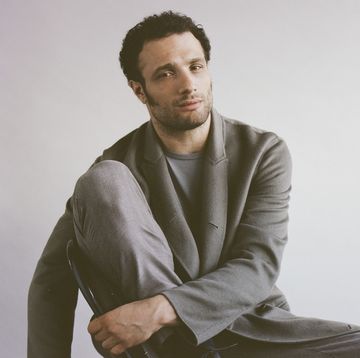Almost immediately following its release, Netflix's captivating true-crime documentary Making a Murderer took a firm grasp on the streaming-enabled public. The 10-episode series principally focuses on the case of Steven Avery, a Wisconsin man who served 18 years in prison for a rape and attempted murder he did not commit, before eventually being exonerated by DNA evidence, only later to be arrested again, this time in connection with the rape and murder of Teresa Halbach, a photographer he had hired. Weaved into the tale is the equally compelling story of Avery's nephew, Brendan Dassey, a learning-disabled 16-year-old who was by all accounts, coerced by police officers into confessing to his role as an accomplice in the crime. The series shows several gripping videotaped confessions in which Dassey is seemingly pressured into admitting to his part in the crime despite what seems like confusion on his part.
Dassey, who in 2007 was convicted of murder and sentenced to life in prison for being a party to first-degree intentional homicide, is still fighting to prove his innocence. Helping him do so are two attorneys, Laura Nirider and Steven Drizin of Bluhm Legal Clinic at the Northwestern University School of Law. Dassey's lawyers claim that law enforcement used psychological interrogating tactics that "overbore [Brendan's] will and exceeded his personal ability to resist due to his age, intellectual limitations and high suggestibility." They also argue that, by pursuing a potential plea agreement with prosecutors, his pretrial attorney, Len Kuchinsky, was not looking out for his best interests. After being denied in their appeals to the Wisconsin state court system, Dassey's case is in now in the hands of a federal judge.
Esquire spoke with Nirider to learn how she and Drizin came to Brendan's case, how Making a Murderer has affected it, and what she believes is a realistic outcome in their ongoing court battle.
ESQ: To start, tell us how you came to take on Brendan Dassey's case.
Laura Nirider: Steve Drizin, with whom I work, had been involved in helping Wisconsin enact a law requiring all interrogations of juveniles be videotaped. And Brendan's was one of the first videotaped interrogations to come out after that law went into effect. So it was a natural path to Steve and our organization. That's the long answer. The short answer is: when you watch that video of Brendan's interrogation you want to jump into the screen and help that child, right? There's this gut response when you see a 16-year-old, especially someone with limitations, going up against two seasoned cops with nobody by his side.
What has it been like with so much attention now being placed on Brendan's case?
I've been working on the case since 2008 and for the longest time Brendan was basically forgotten. And when he was remembered he was remembered as a murderer. This changes everything, which is unbelievable for him and for his family. We have always been supportive of this project. We knew the series was being made and we always knew it was a story well worth telling. But the level of exposure it's gotten, the level of attention it's drawn, and the level of gut emotional response it seems to have had on people is incredible.
Are Brendan and his family aware of all the attention?
Absolutely. They're aware. Brendan is overwhelmed. He's grateful. He's just hoping for his fair shot.
From an attorney's perspective, is it beneficial for so much outside attention and media exposure to be placed on an ongoing case such as Brendan's?
I do see it as a positive. I'm an attorney but I'm also a law professor. And one of the things I do is I study and I represent people who have falsely confessed. So I'm kind of a false-confessions specialist. It's this crazy idea, right? Why would anybody confess to a crime they didn't commit? That's everybody's gut reaction: "If Brendan confessed, he must have done it." But the incredible thing about this series is it shows viewers exactly why someone like Brendan—16-years-old, mentally limited, in the room alone with no attorney, no parents, facing two seasoned police officers—would falsely confess even to something as horrible as the murder of Teresa Halbach. And to have that explanation out there and to have it to make so much sense in viewers' minds is so invaluable because then the vibe changes. People say, "Maybe this guy isn't just somebody who should be forgotten. He shouldn't just be remembered as a murderer. Maybe there's another side to this story." Which, of course, there is.
You've filed a petition for a writ of habeas corpus in Brendan's case. Can you outline exactly what that is and how it applies to Brendan?
We have two claims that are pending in federal court. One is Brendan was coerced into confessing. Everyone has a right to not be forced to incriminate themselves. We're saying that was exactly the right that was violated for Brendan because he was coerced into confession in violation of the Constitution. The other claim that we have relates to Brendan's pretrial lawyer, Attorney Len Kuchinski. Also under the Constitution, every one of us has the right not just to a lawyer but to a lawyer who is loyal to us and who is going to defend us. We're arguing that Brendan's right to a loyal attorney was violated because Attorney Kuchinski and his investigator were instead working to incriminate Brendan.
What is a desired and realistic outcome in this case?
I think the best ruling that we could hope for coming out of federal court would be an order that Brendan should be retried. And then it would be an open question as to whether the state would actually proceed with that retrial.
Have you exhausted all other legal proceedings?
That's a hard question to answer because there are always different ways of coming into court. He's been turned down by the Wisconsin court system, so that's why we've taken this to the federal court. We can always get back into court when there's new evidence in the case. That's one thing we hope comes out of this, frankly: if there's somebody in Wisconsin that's watching the series who thinks to themselves, "I remember hearing something. I remember seeing something that might have something to do with this case" I'm hopeful that that kind of evidence will start percolating to the surface. Because there are people out there who know that Brendan's confession was false and he shouldn't be sitting in prison. We're just hoping that we can take advantage of that, hear from them and get some movement going again.













